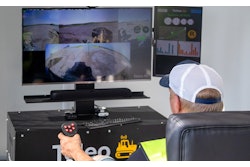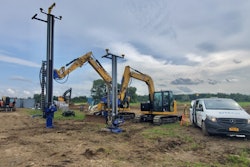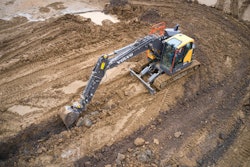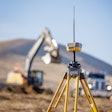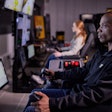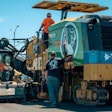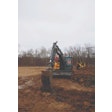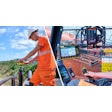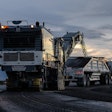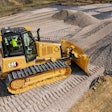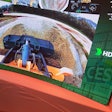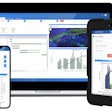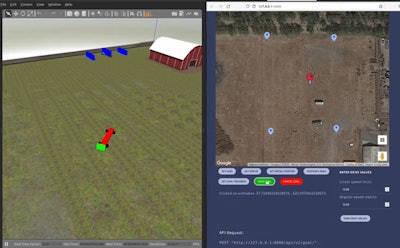
Major original equipment manufacturers (OEMs) have dominated the market for remote construction equipment operation technology. These technologies generally involve operation within line-of-site or fully remote, with operators using a traditional control set just as if they were on the machine.
Emerging companies though are pursuing a strategy of supervised autonomy, where equipment gains functional independence to execute tasks in accordance to commands from a human operator. This requires more compute horsepower at the edge--on the device.
"For some use cases, we are autonomous," Teleo Founder Vinay Shet told IRONPROS in a March, 2023 briefing. "An example may be traveling from point A to point B. We take your best operator and supercharge them, and enable them to do more than they could on site They can switch across machines with each machine in autonomy mode. On rear loaders or skid steers, they can see through cameras under the bucket for unimpeded views."
For the required jobsite connectivity to make the solution work, Teleo ships its own networking solution to ensure a mesh network on site. The solution requires a regular commercial internet connection.
Ideal customers according to Shet include quarries, concrete plants and other loading operations. Dump trucks can be retrofitted to handle back and forth loading duty cycles.
Samsara Funds Polymath
At its June event, Beyond, Samsara announced the launch of its seed stage investment fund in technology startups, and an initial class of investments including Polymath Robotics. Polymath is combining remote operation of equipment with automation to lower labor costs associated with operating heavy equipment. The company is preparing to launch its first commercial product, for bulldozers. The product set combines automation via edge computing and direct access to connected equipment via Samsara's platform.
"Really, what we do is replace the lizard brain of that operator," Polymath Founder Stefan Seltz-Axmacher said in a live interview with IRONPROS from the event. "There are experienced operators who can look across a field and see something going on that needs to be fixed--we have nothing on him. What we can do is automate that operator that needs to be told to go to that spot right there, turn left, and then slow down to 5 mph and stop at that spot right over there."
Polymath has telegraphed its intentions to launch a dozer product in North America later this year.
STREAM OUR FULL DISCUSSION WITH SELTZ-AXMACHER
